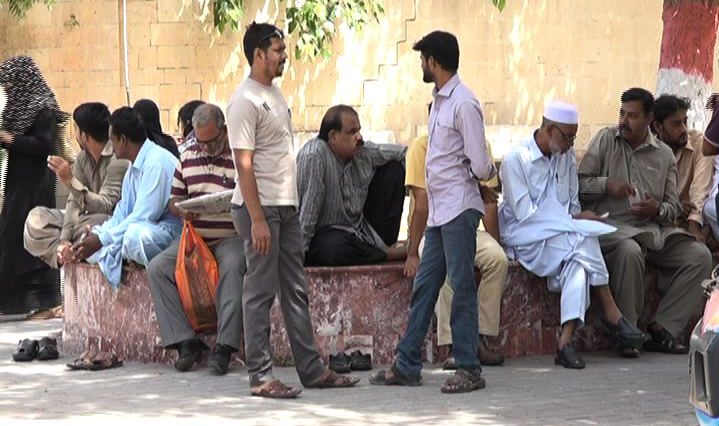KARACHI: Nusrat Fareeda Khan, an American-Pakistani widow, had been fighting for her late husband’s property for the last 39 years through the courts until she won her case earlier this year.

The judgment handed down by the provincial Sindh High Court in May, a copy of which was obtained by Truth Tracker, found that the defendants had used unfair tactics to delay the case.
“The defendant’s lawyer is more responsible for the delayed verdict as he kept using tactics to drag the case,” the judgment states.
Khan is not the only one in Pakistan who has struggled for decades for her rights. Thousands of Pakistanis are victims of delayed justice, as the country’s courts are trapped under piles of cases.
According to the Supreme Court of Pakistan annual report, around 1.8 million cases are under way across the country’s judicial system.
“The Pakistani judiciary played a vital role for the restoration of democracy, judiciary and protection of basic public rights,” senior lawyer Javed Ahmed Chattari told Truth Tracker.
“But despite being vibrant and vocal, Pakistan’s judiciary is slow at resolving cases,” he said.
The last comprehensive annual report by the Supreme Court of Pakistan stated that around 1.5 MILLION undecided cases are lying pending with the lower courts and 300,000 cases are under proceeding in the high courts and Supreme Court.

Pakistan has a three-tier judiciary; lower courts at district level and, five high courts in four provinces each and one in Islamabad and a Supreme Court at federal Level.
“The lower courts provide justice at the grass roots level, but it takes decades for several cases to reach a verdict,” Chattari told Truth Tracker.
In National Judicial Policy 2012, the Supreme Court had expressed grave concern over the huge backlog of cases in courts and announced short term and long term reforms.
Another case was recently resolved in the Sindh High Court after 62 years.
According to details of the court’s proceedings and judgment, two men claimed ownership of a plot in Karachi. Both claimed that the government had allotted it to them in 1954. The claimants and their respective fathers had the same name.
The dispute ended earlier this year on MARCH 30, 2016 when the Sindh High Court ruled that the claimants had failed to prove their ownership and the plot was declared public property.
“All stakeholders are responsible for a huge backlog in courts. Frivolous cases also pose a major hurdle in the timely decisions of cases,” the former Chief Justice of Pakistan’s Shariah Court, Agha Rafiq Ahmad, told Truth Tracker.
Almost 40 to 50 percent of the backlog cases are frivolous cases. The litigants of such cases use delaying tactics to get maximum benefits of the dispute,” he said.
“The number of cases under proceeding would be dropped by 40 to 50 percent if judiciary succeeds in excluding non-serious and fake frivolous cases,” the former judge added.
He said that lawyers played major role to delay the proceedings of cases because they earn more in this way. He suggested that special judges should be assigned to reduce backlog. “They should hear old cases only,”
Barrister Salah Uddin Ahmed, vice chairman of Sindh Bar Council said that the outdated procedural system in Pakistani courts is one of the main reasons behind delayed dispensation of justice.
He said, “I was part of a senior lawyer’s team, assigned to identify causes for huge backlog in courts. The team proposed a comprehensive reforms plan but it was not implemented.”
He said that the government had introduced short term reforms under National Judicial Policy which proved a futile exercise as those reforms failed to deliver.
Senior journalist and analyst, Akhgar Ali Awan, points out that Pakistan’s judicial system is based on old laws of British era, which failed to deliver speedy justice.
“Lawyers violate bar councils guidelines, which is another major cause of delayed dispensation of justice,” Awan told Truth Tracker.
“Case Flow Management System software was introduced in the Sindh High Court in 2008. The software brought an improvement in record keeping in that court. But the main issue is the lower courts.”
The Sindh provincial government recently announced the recruitment of another 200 prosecutors to work on resolving the backlog, Prosecutor General Sindh Shahadat Ali Awan said while talking to Truth Tracker a couple of months ago.



